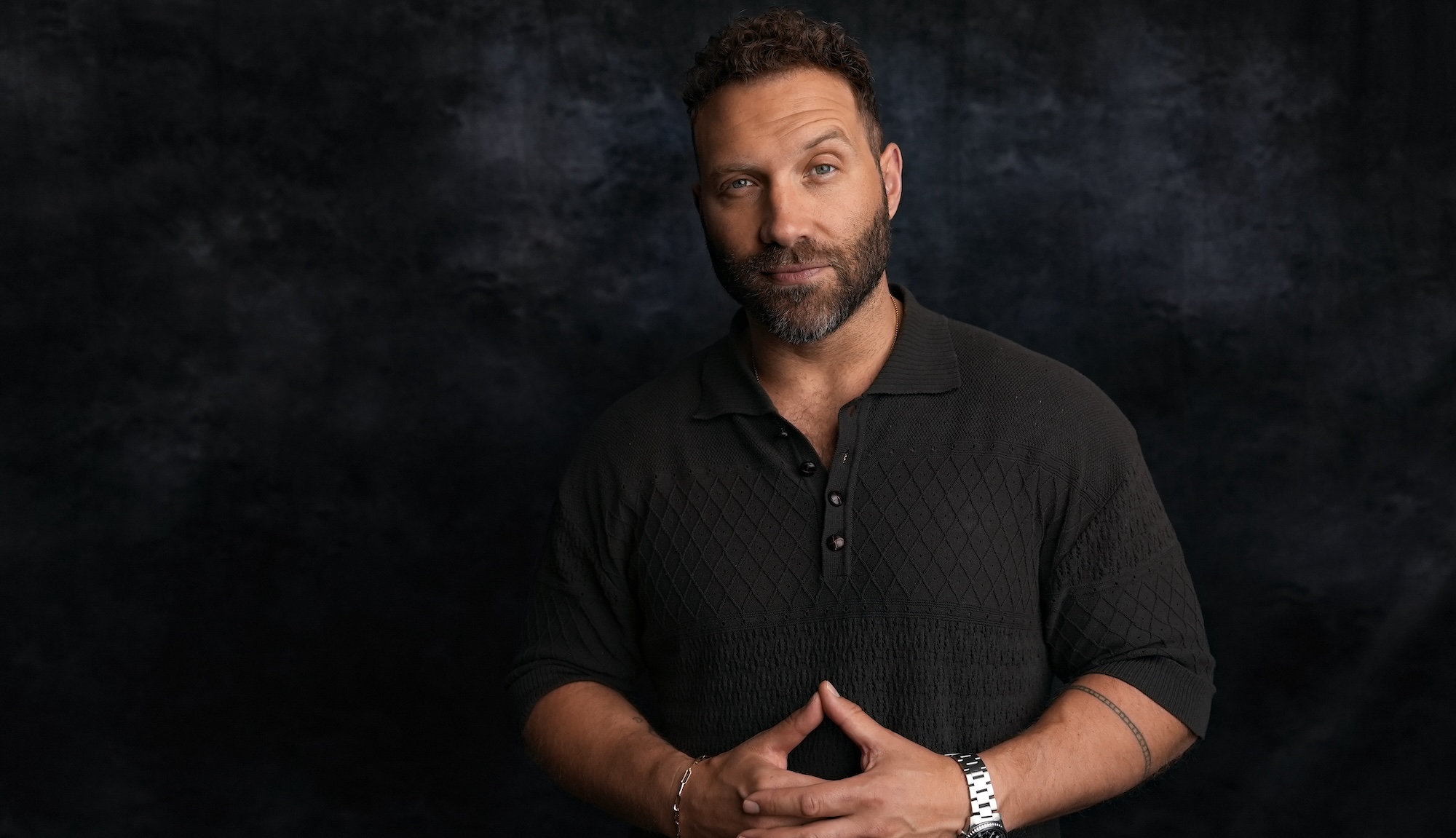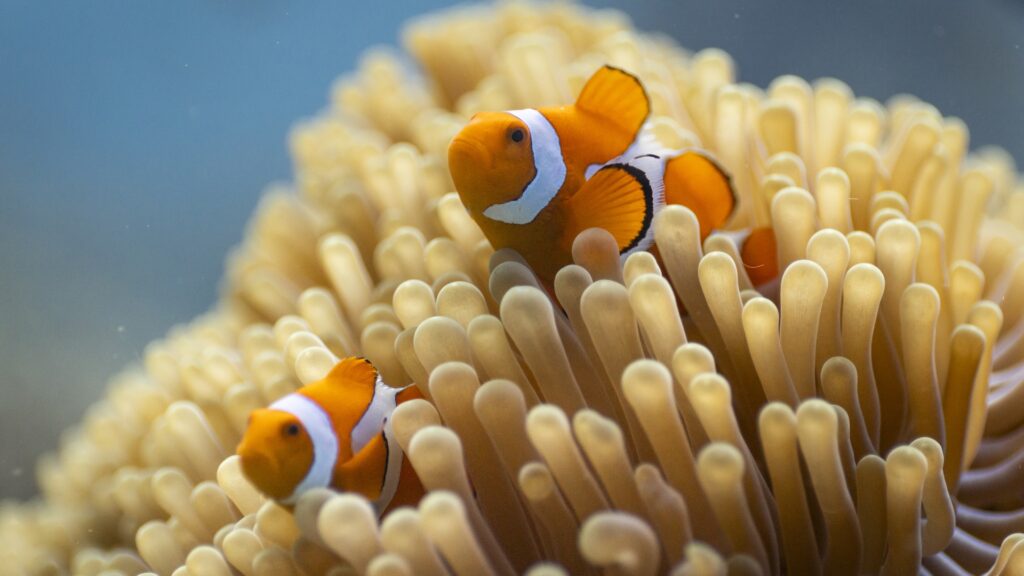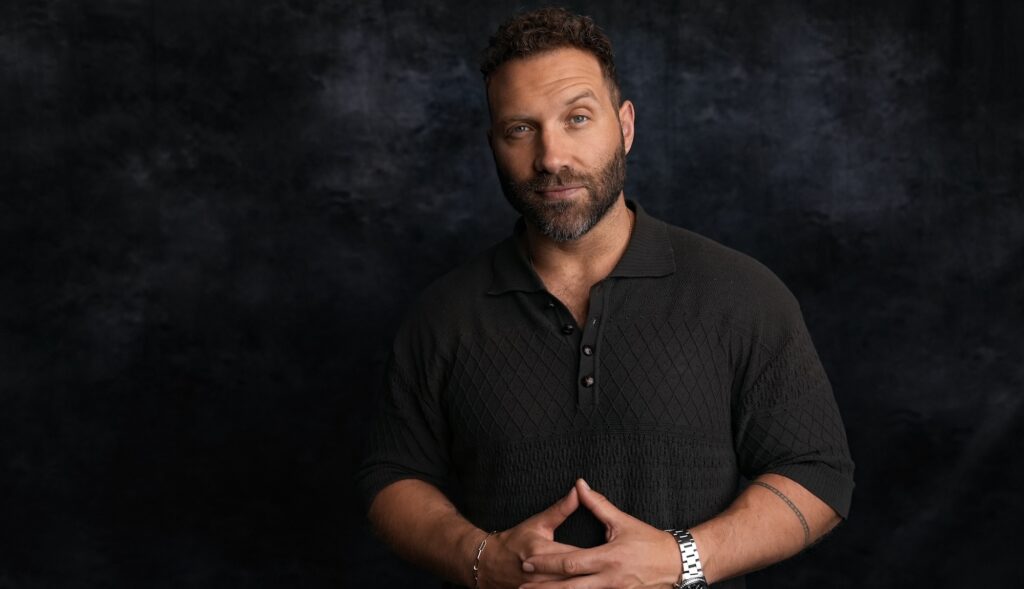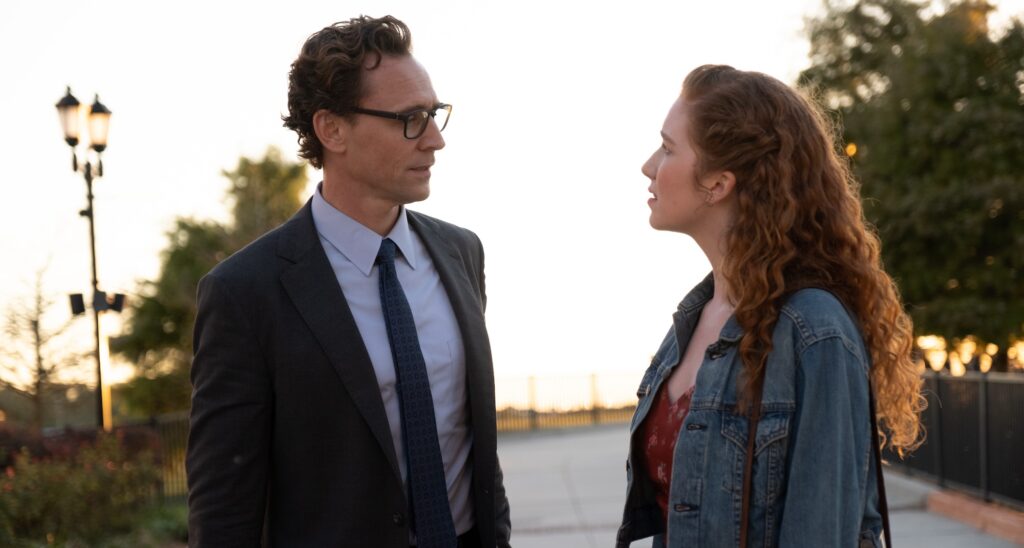Before the film Chopper came along, small-time Australian criminal Mark Read achieved the type of celebrity that might only occur in the ‘90s. Despite serving time in the Australian prison system after being convicted for shooting a mate in the chest, Read became an unlikely bestselling author and interview subject, always happy to take credit on the page for crimes he was convicted of—as well as many more he was not.
Yet what fully cemented his legend was that 2000 movie, a crime film so innovative that it introduced writer-director Andrew Domink, star Eric Bana, and of course the man and myth that was Chopper to an international audience—as well as many more who came up afterward reared on the legend. That includes fellow Australian Jai Courtney, who admits that as a kid growing up in the ‘90s, he never even heard of Read until someone slipped him the Chopper DVD.
“God knows if I was even allowed to watch it,” Courtney laughs 25 years after the film’s release. “It was probably one of those things that kicked around on DVD and you passed between your mates.” Yet it found its way into his DVD player—and many more since. “If you meet someone and you’re talking about the films that are your favorite films, and someone hasn’t seen it, it’s a must… I’ve even been guilty of buying a DVD player and finding the DVD on eBay in order to screen it for people who haven’t seen the movie before.”
It became a touchstone for the future star of Suicide Squad and The Exception, and one which echoes in the work Courtney still does today. For example when he stops by our studio to appear on the In the Den video series above, it is ahead of the release of this summer’s bloody clever riff on the serial killer and shark movie subgenres, Dangerous Animals. In that film, Courtney plays a little bit of both predators as a guy named Tucker—someone who takes tourists out to swim with sharks, and sometimes ends up feeding them to the sharp-toothed beasties.
“Tucker is such a performer,” Courtney explains. “He’s such a storyteller that the boat deck even functions as a kind of stage for him.” He is a guy who may not bring all tourists home, but no matter how the excursion goes, he’s having a good time. “He loves it. I think he’s really passionate about it, passionate about his conservation and the crusade he’s on, he really sees himself as one with the shark.”
It’s also a turn that Courtney admits might have subconscious influences from watching what Bana did with the real-life Chopper Read in the 2000s.
“I think what you see Eric do with that role is quite profound,” Courtney considers. “He turns what could maybe be interpreted as a sort of two-dimensional kind of villain type into something that’s incredibly lovable. I mean, I’m sure if you’ve ever seen any interview with Mark ‘Chopper’ Read himself, you understand just how insanely good this is. It’s almost like an impersonation, honestly. He’s like an excellent mimic, Bana is.”
In fact before Chopper made Bana an international star, paving the way for everything from Hulk and Troy to Steven Spielberg’s Munich, the actor was known primarily as a standup and sketch comic on shows like Full Frontal in Australia. “He had a few great, very quotable characters,” Courtney says of his memories watching the show as a kid. And according to legend—aka Mark Read—the real-life Chopper was also a fan who watched the series in prison before telling Andrew Dominik that he should cast this Bana kid as the movie version of himself.
“I don’t know how true that is, but from what I understood, he kind of handpicked him,” Courtney says. “I’m sure he’d lay claim to that whether it was true or not.” As the movie Chopper shows, the real-life Read had a knack for taking credit for crimes he probably had nothing to do with as well.
“One of the interesting facts about him being such a colorful character is he laid claim to many more killings than he was certainly ever prosecuted for,” Courtney points out, “and there was a sort of perception to some of that, that it might have been completely made up. And I think that damaged his ego somewhat, which is interesting.”
But for a young aspiring actor growing up in Australia, the appeal of Chopper was just the bravado of the performance, and being able to quote so many of Bana-as-Read’s lines. In spite of the film’s real-world roots, and the fact that even most of the first half of Chopper is filmed in Pentridge Prison, the Victorian correctional facility that Read spent decades in—his flashes of theatricality and violence feel like something out of a Hollywood crime thriller.
Consider two early sequences in that prison setting, one where Chopper stabs Keithy George (David Field) and, later, when his own supposed mate Jimmy Loughnan (Simon Lyndon) shivs Chopper. In both scenes, Bana plays first the attacker and then the victim as quasi-astonished and even sympathetic to the person on the other end of the knife.
“There’s that incredibly acute attack on Keithy,” Courtney recalls, “which kind of comes out of it being very calculated. There’s an opportune moment, and then it’s a hyper violent beat and this kind of explosion [of violence]. But then he’s almost remorseful immediately after and he’s passing him a cigarette. There’s an empathy to it there. He was just this dude that had so much light and shade, and I find that just such a dynamic performance. It’s really inspiring.”
It was the performance that ended up taking Bana to Hollywood around the same time that a similarly deranged turn by Russell Crowe in Romper Stomper (1992) led eventually to Gladiator—and not that long even after Mel Gibson set a template for this style of Aussie genre mania in the acutely titled Mad Max (1979). There’s a reason in his review for Chopper in 2001, Roger Ebert wondered “is everyone in Australia a few degrees off from true north?”
“That’s a good quote,” Courtney laughs. He also notes how many of those performances of fellow Australians like Bana and Crowe inspired him when he was starting out.
“Russell’s a friend,” says Courtney. “I got to work with him some years ago now, about 10 years ago, but those guys are a huge inspiration. Heath Ledger, of course, and Hugh Jackman, and a little closer to a contemporary of mine is Joel Edgerton. I was looking at all those guys who were cracking through at a time when it was either starting to become just like a distant dream in my eyes or something that felt like I was on the cusp of.”
The line also invites comparisons to the heightened and genre madness in the distinctly Australian Dangerous Animals, which is directed by the Tasmanian-born Sean Byrne.
“It’d be cool,” Courtney muses about folks making comparisons with Dangerous Animals. “It was an interesting film to make. I didn’t quite know what I was stepping into. You can’t predict really anything in these processes. All you can do is make a kind of educated guess at how you’d like things to turn out, and Sean was a great collaborator. So when I read it, my instinct was that I needed to go big with this character in order for it to work, and to give it that color. Because I think if he’s played with this wash of evil intention, it’s just less interesting to me. But Tucker felt like someone you could be stuck on the bus next to, the guy you sit down next to in the bar, the dude driving your taxi that won’t shut up. There’s a familiarity to him.”
Like sharks in the sea, you can’t escape these guys.
Dangerous Animals is now playing in the U.S.
The post Jai Courtney Dives into the Legacy of Chopper and Australian Genre Cinema appeared first on Den of Geek.




